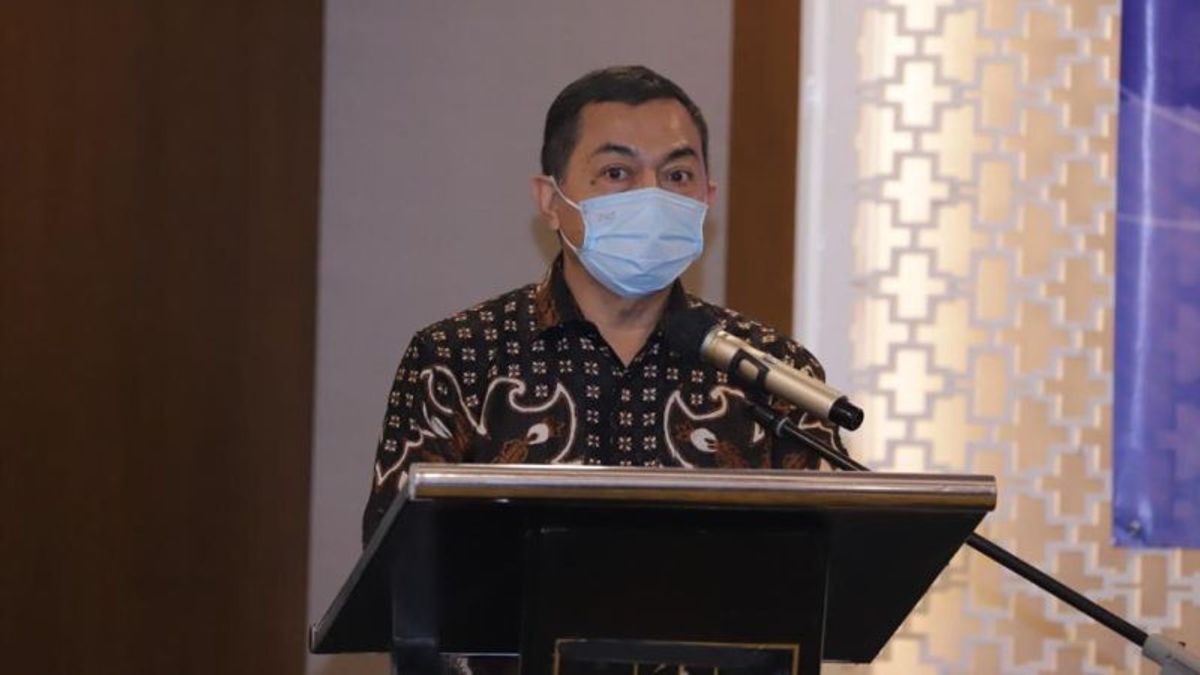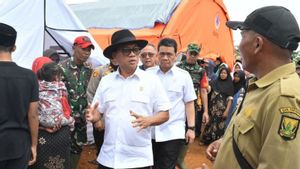JAKARTA - The Ministry of Maritime Affairs and Fisheries (KKP) has prepared alternative livelihoods for fishermen who cross the borders of Indonesian-Australian waters to reduce the rate of fishing violations by Indonesian fishermen in Australian waters.
"Alternative livelihoods are very important considering that awareness-raising and law enforcement activities alone will be meaningless without solutions related to increasing the income of cross-border fishermen," said Secretary General of the KKP Antam Novambar as quoted by Antara, Friday, May 27.
The issue of transboundary fishing has been discussed bilaterally by the KKP and Australia. Among other things, a meeting between the Director General of Marine and Fishery Resources Supervision (PSDKP) and Australian related authorities in Jakarta towards the end of 2021.
Then, the Indonesia-Australia Fisheries Surveillance Forum (IAFSF) meeting at the end of March 2022 and the IAFSF follow-up meeting in mid-May 2022.
As well as the initial inter-ministerial internal meeting held by the KKP on January 20, 2022.
In the meeting it was agreed that one of the solutions to the problems of Indonesian-Australian cross-border fishermen is alternative livelihoods.
In an effort to prepare alternative livelihoods for cross-border fishermen, KKP held a Focus Group Discussion (FGD) with representatives from the East Nusa Tenggara Provincial Government, the Rote Ndao Regency Government, the Coordinating Ministry for Maritime Affairs and Investment, the Ministry of Foreign Affairs, and Bappenas in Jakarta on Friday. 27 May 2022.
"This activity aims to identify and provide recommendations for several alternative livelihoods for Indonesian-Australian cross-border fishermen that consider all related aspects, both economic, socio-cultural, political and physical/geographical conditions of the local area," said the Head of the Bureau of Public Relations and Foreign Cooperation. State (BHKLN) KKP Agung Tri Prasetyo.
Agung explained that traditional Indonesian fishermen have been fishing in Australian waters for a long time. The catch commodities consist of lola, sea cucumber, abalone, clams, and sharks, all of which have high economic value. While the fishing grounds include Ashmore Reef, Scott Reef, Seringapatam Reef, Cartier Island to the far south to Marege (Arnhem Land) and Kayu Jawa (the Kimberley).
The Australian government even recognized the traditional fishing rights of Indonesian fishermen through the signing of the 1974 MoU Box agreement.
However, over time, the Australian Government has designated Ashmore Reef as a National Nature Reserve and closed the area from fishing and other marine resources that were previously permitted.
The change in the status of Ashmore Reef and the existence of maritime delimitations according to the agreement on the Continental Shelf and the Exclusive Economic Zone of the two countries, made the activities of fishermen across Indonesia-Australia borders increasingly limited and eventually fishing occurred outside the MoU Box area.
"Last year there were 275 cases of our fishing boats being arrested by Australian authorities. This is a fairly high case. Therefore, diplomatic efforts are very important, in addition we also prepare alternative livelihoods. In this discussion forum, there are representatives from the local government, Kemenko Marves, Kemenlu, Bappenas who can provide updated input and things that become experiences in efforts to improve alternative livelihoods," he said.
Meanwhile, the General Planning Coordinator of the KKP Planning Bureau, Siddiq Pratomo, revealed that the KKP Priority Program under the captain of the Minister of Maritime Affairs and Fisheries Sakti Wahyu Trenggono, in the form of Cultivation Village Development based on local wisdom, could be a new job solution for cross-border fishermen.
Moreover, he continued, cultivation activities are not new for the people of NTT, especially seaweed cultivation.
In addition, the KKP will implement a quota-based measurable fishing policy that requires a large number of crew members. There is also the Kampung Nelayan Maju program which is believed to be able to encourage cross-border fishermen to stop fishing in Australian waters, considering that the potential for natural resources in the NTT area is also very large.
The English, Chinese, Japanese, Arabic, and French versions are automatically generated by the AI. So there may still be inaccuracies in translating, please always see Indonesian as our main language. (system supported by DigitalSiber.id)








